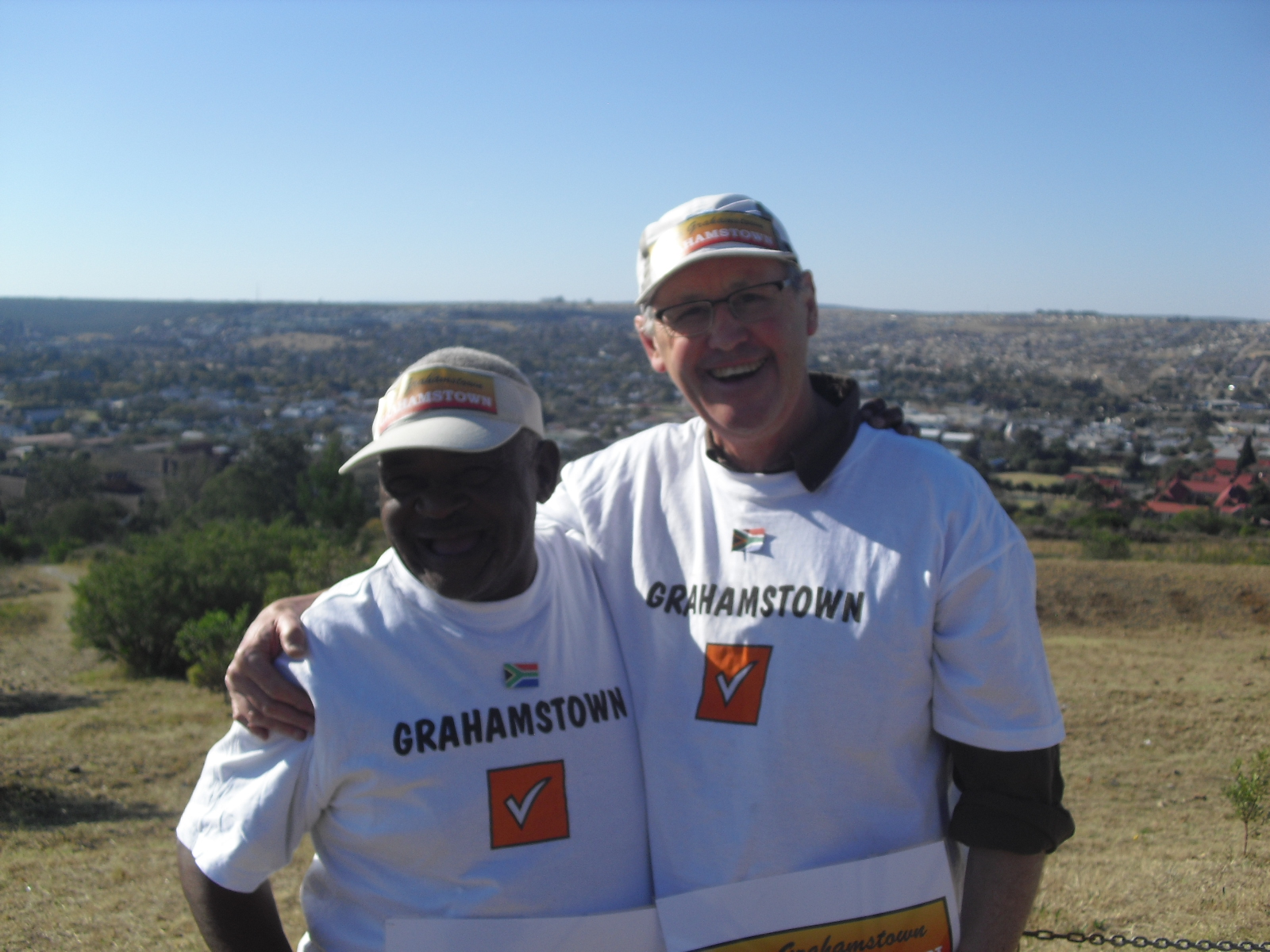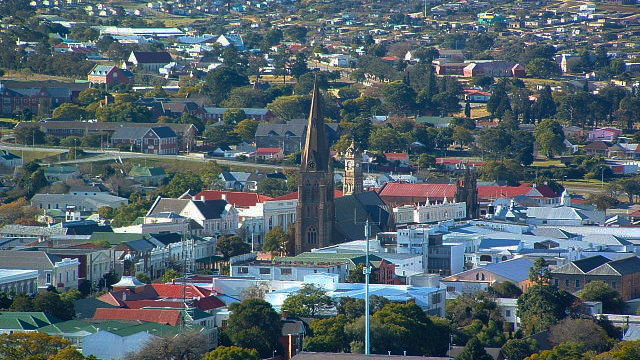By JOCK McCONNACHIE and SIGIDLA NDUMO, joint co-ordinators, Keep Grahamstown Grahamstown (KGG)

“…But he that filches from me my good name, robs me of that which not enriches him and leaves me poor indeed“, so goes the quotation from Shakespeare’s Othello and if ever a name was ‘filched’, it was the name of South Africa’s second oldest city, Grahamstown.
There will be those who question whether Grahamstown was ever a ‘good name’ considering the exploits of the alleged ‘butcher’, Col John Graham, who was tasked with the ‘clearance’ of the Xhosa from the Zuurveld in 1812.
As further justification for the name change, Graham was also incorrectly implicated in the killing of many Xhosa warriors in the famous Battle of Grahamstown in 1819. In fact, Graham, who died in Simonstown in 1822, was only on the frontier for a few months from late 1811 to April 1812 and was nowhere near Grahamstown on 22 April 1819 when the garrison of 400 soldiers was attacked by an estimated 10 000 Xhosa mustered by the traditional healer and prophet, Makana, which, with the new spelling Makhanda, is now the new name of Grahamstown.
The last shot in the prolonged battle over the name of Grahamstown was recently fired by the Supreme Court of Appeal when it refused a petition for leave to appeal against previous court decisions which declared the name change lawful.
The battle commenced in earnest in 2007 when the then Mayor of Grahamstown, Ntsikelelo Kate, announced that the name was offensive and “must go”. The intention to change the name had already been signalled when the Eastern Cape Provincial Geographical Place Names Committee (ECPGNC) announced a “dirty dozen” list of colonial names of towns in the Eastern Cape which had been identified for change.
The name of Grahamstown was top of the list, and it was the first name in the Eastern Cape to be targeted for a name change. It proved a hard nut to crack but crack it eventually did – after 15 years!
Immediately after the announcement by Grahamstown’s former Mayor, the writers of this article, Sigidla Ndumo and Jock McConnachie, both ardent Grahamstonians, organised a ‘snap poll’ of locals to gauge if they were in favour of a name change or not. The outcome was that the vast majority of Grahamstonians from all sections of the community were not in favour of a name change. The Keep Grahamstown Grahamstown (KGG) campaign was then launched with the intention “to make a positive contribution to the public consultation process on the potentially divisive issue of the proposed renaming of Grahamstown”.
In announcing the proposed name change, Kate envisaged that the process would be completed in a few months, by which time Grahamstown would have a new name. The battle turned into an epic one.
The public consultation process over the renaming of Grahamstown was led until 2016 by a Names Committee led by ANC local councillor Julia Wells, a history professor at Rhodes University. She was an arch proponent of the name change and most likely instigated the suggestion that Grahamstown should be renamed after the person after whom the municipality had already been named in 2002 but with its traditional spelling Makana.
Wells, who has recently published a book, The Return of Makhanda, came up with the new spelling as a ‘correction’ of the colonial spelling of the name on the basis that the “-da” at the end of the name denotes the crushing action of a traditional healer when preparing muti. As onomasticians (names experts) have questioned: if that is the case, then why do the names of all Xhosa traditional healers not end in “-da” and why was the name not spelt that way if that is how it was heard?
To this day, and notwithstanding the adoption of the name Makhanda for Grahamstown, the original spelling has been retained for the name of the municipality so that we now have the name of the city Makhanda within the municipality of Makana referring to the same person!
The name change of Grahamstown to Makhanda was officially promulgated by the Minister of Sport, Arts and Culture, Nathi Mthethwa, in October 2018 after the renaming process was taken out of the hands of the Makana Municipality by the ECPGNC in conjunction with the Sarah Baartman District Council in May 2016. The new process comprised a single, poorly-attended public meeting in February 2017 after two previously unsuccessful attempts.
The KGG refused to participate in the meeting on the basis that the three previous consultation processes conducted by the Makana Municipality in conjunction with the ECPGNC as well as an independent opinion survey by the Rhodes University Department of Social & Economic Research had proved that there was insufficient public support for the name change.
The KGG argued that the ECPGNC could not continue to hold public consultation processes ad infinitum until it got the predetermined result it wanted. However, in his judgment refusing the application to declare Grahamstown’s name change unlawful, Judge Murray Lowe found that the KGG only had itself to blame for not attending the meeting and for choosing to fight the battle “from the shadows”, as he put it.
On the contrary, the KGG actively participated in all of the previous, more thorough, public consultation processes from 2007 to 2013 and in everything that occurred after May 2016, with the justifiable exception of the public meeting of February 2017.
Also, in declaring that the renaming was not unlawful, Lowe J overlooked that the KGG’s extensive objection, backed by thousands of signatures and individual submissions, sent to the Minister of Sport, Arts & Culture by registered mail after notice was given of his intention to promulgate the name change, was returned to the KGG unopened and was therefore never considered or replied to as the law requires.
But Lowe J’s judgment was upheld on appeal by a Full Bench of the Eastern Cape Division, which agreed with his criticism of the KGG for not attending the public meeting in February 2017.
In their criticism of the KGG, Lowe J and the appeal Judges also overlooked the fact that the application for the name change was made by an official of the Department of the Eastern Cape Department of Sport, Recreation, Arts and Culture who himself did not attend the meeting whilst many of those who attended the meeting were also officials of the Department. They did not do so in their capacity or as members of the affected community.
Another disappointing feature of both of the judgments which upheld the name change was that they also ignored argument on the anomaly that whereas the motivation in the application for the name change was ‘historical’, the name change was finally approved on the grounds that the existing name was ‘offensive’ which are separate and distinct grounds as provided for in the applicable legislation and official guidelines of the South African Geographic Names Council (SAGNC).
As for the Minister’s muddling of historical details, it was dismissed as “irrelevant”, and neither judgment applied the specific guideline of the SAGNC that existing names should be retained “as part of the historical, cultural and linguistic fabric of the nation.”
After the appeal against the decision on the original application was unsuccessful, all hope was pinned on the petition to the Supreme Court of Appeal, but it also failed. As is usual, no reasons were provided for the rejection of the petition other than “the absence of any reasonable prospects of success”.
Most surprisingly, neither the decisions of Lowe J, the Full Bench, or the SCA followed the reasoning in the previous decision of the SCA, which declared the renaming of Louis Trichardt unlawful. That was done on the basis that there was no proper consultation because a public meeting had been held in only one of the wards making up the municipality, whereas in the case of Grahamstown, only one poorly-attended public meeting was held for the whole of the city. It constituted a new, fast-track method of public consultation to avoid having to hold separate public meetings in each of Makana’s 14 wards as required under the SCA decision.
In overturning the renaming of Louis Trichardt ten years after it had happened, the SCA also found that the decision to rename a city or town is primarily that of the local community, which requires a decision of the local council as representatives of the local community. Also, contrary to that ruling, the Makana Municipality never decided in favour of the change of the name from Grahamstown to Makhanda or on the question of the spelling of the new name of the city in comparison to that of the name of the municipality.
Decisions of the SCA are binding on all lower courts and are usually followed by the SCA itself unless the circumstances are distinguishable. No such distinguishable features were identified by any of the courts which considered the lawfulness of the name change of Grahamstown. Instead of following the Louis Trichardt decision as was expected, it seems that the Courts rather aligned themselves with recent pronouncements by the Chief Justice of the Constitutional Court, Mogoeng-Mogoeng, that name changes must happen, and that technical legal argument should not impede the process.
As we have seen with other name changes such as those of Port Elizabeth and Uitenhage, in addition to earlier name changes in the Eastern Cape such as that of Queenstown, the door to wholesale name changing is now wide open, and opposition is almost certainly futile.
One has to accept that Grahamstown has a new name, but one thing is sure; the KGG can not be accused of fighting the issue “from the shadows”. For 15 years, it engaged on the issue openly, robustly and energetically with the best of intentions, also arguing that the motivation for changing the name was retribution to settle old historical scores, contrary to the spirit of reconciliation as required by the Constitution.
Retribution won the day, and there is no question that changing the name of Grahamstown has left us poorer. The name change has also given impetus to the general deterioration, which was becoming steadily more evident during the 15 years it took to force the name change upon us to the point that the city now known as Makhanda appears to be in free fall. Ironically, the most oft-heard comment about the name change is that “Muck-under” (Makhanda) is an appropriate description of the place that the former Grahamstown has become compared to what it used to be.
As KGG, we thank everyone who supported the effort to keep the name of Grahamstown and those who donated to the campaign. We also thank our attorney, Brin Brody of Wheeldon Rushmere & Cole and Advocates Izak Smuts SC and Gavin Brown for their very able assistance in acting on contingency.
Notwithstanding the disappointing outcome, we believe that the effort was necessary and that in the fullness of time, the KGG will be judged to have been correct in its stance.



